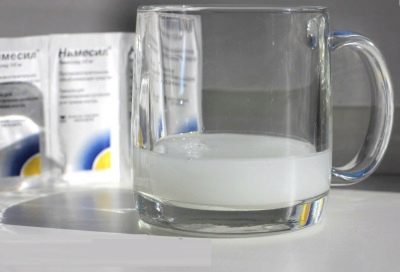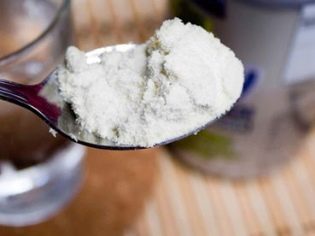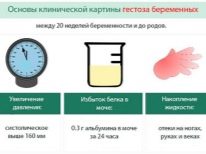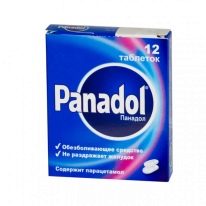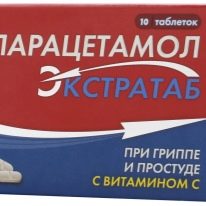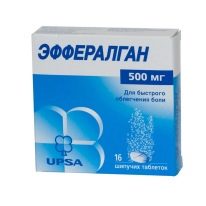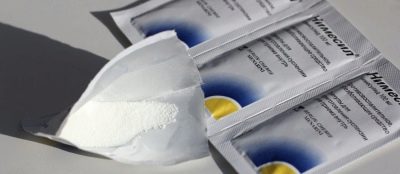"Nimesil" during pregnancy: instructions for use
If a woman is expecting a baby, she should not take any medication, because it can cause negative consequences. However, the gestation period is rather long, and it is often impossible to avoid taking medications, for example, if the expectant mother pulled her back, caught a cold or had a toothache. Usually in such cases one of the painkillers is prescribed, for example, Nimesil. However, during pregnancy, its use is limited, and doctors consider such a medicine unsafe for the woman in position and the developing fetus.
Features of the drug
"Nimesil" is known as an effective cure for pain, inflammation and fever. All these healing effects are caused by its main ingredient, which is called nimesulide. The drug is represented by granules, packaged in portion bags of 2 grams. In one such bag is 100 mg of nimesulide, to which maltodextrin, orange flavor, citric acid, ketomacrogol 1000 and sucrose are added. Thanks to these auxiliary substances, the granules are dense, light yellow in color and smell pleasantly like orange, and also quickly dissolve in water to form a sweet orange suspension.
Nimesil is sold in boxes containing 30, 15 or 9 sachets, but if you wish, you can also purchase it individually. To do this, you need to show a prescription from the doctor and pay an average of 240-260 rubles for a pack of 9 sachets.
Store the medication at home, according to the instructions, in a dry place at a temperature of +15 to +25 degrees, taking care that the small children do not find the drug during storage. If the granules are sealed, their shelf life is 2 years, and the preparation diluted with water is not recommended to be stored.
Action and testimony
The active substance Nimesil has the ability to block type 2 cyclooxygenase. Such an enzyme regulates the synthesis of pain mediators; therefore, the result of its depression will be the elimination of the pain syndrome. It is this indication that is the main reason for using Nimesil.
The drug is prescribed for acute tooth or headache, as well as for pain in the joints, back or muscles. This medicine helps with sprains, sprains and other injuries. It is used if a patient has ligament inflammation, arthritis, bursitis, or another disease of the musculoskeletal system has developed, since Nimesil has a pronounced anti-inflammatory effect.
This medication has the ability to lower body temperature, so it is permissible to take it during fever, but usually resort to similar use in the absence of other antipyretic drugs at hand, which are considered safer and more effective.
Ingested and diluted with water granules are quickly absorbed, providing the maximum concentration of the active substance in the bloodstream after 2-3 hours. Metabolism of the drug takes place in the cells of the liver, so any problems with the work of this organ can affect the action of Nimesil and increase the risk of side effects. With bile, the modified drug enters the intestine, and then leaves the body with feces, however, approximately 50% of the active compounds of the granules are excreted in the urine, that is, in cases of kidney diseases, this process can be disturbed, which also increases the likelihood of the harmful effects of the drug.
Is it used during pregnancy?
The instructions for the granules indicated that Nimesil should not be used during gestation, nor during breastfeeding.. The use of such a tool is not recommended when planning pregnancy, to eliminate the harmful effects on the fetus in the early stages, when it is most dangerous and can lead to miscarriage. If pregnancy is possible, the use of Nimesil should be abandoned, resorting to safer analogues.
In very rare cases, the drug can be used once in the later periods, if there are no other pain medicine on hand. However, this method of Nimesil must be monitored by a doctor, and it is unacceptable to exceed the dose prescribed by a specialist. It is forbidden to drink the medicine on any term of gestation.
Such restrictions are associated with a high risk of influence of nimesulide on the development of the fetus, and on the state of the uterus.
It is known that this drug can:
- affect blood clotting;
- cause an allergic reaction;
- too sharply reduce body temperature;
- worsen liver function;
- affect the central nervous system, causing nervousness, headaches or dizziness;
- provoke heart defects in the fetus;
- cause swelling in a woman;
- cause anemia;
- increase blood pressure;
- affect uterine contractility;
- provoke diarrhea, vomiting, or other dyspeptic symptoms;
- reduce the level of potassium in the blood;
- increase the risk of preeclampsia.
Contraindications
"Nimesil" can not drink not only when carrying a baby and breastfeeding, but in many other cases. As mentioned above, the drug is not recommended for diseases of the liver and kidneys, because these organs are involved in its metabolism and excretion.
In addition, granules are prohibited when:
- hypersensitivity to any ingredient;
- stomach ulcer;
- intestinal inflammation;
- allergies to acetylsalicylic acid;
- bronchial asthma;
- bleeding or inclination to it;
- taking other toxic for liver and kidney drugs.
The drug also should not be used with high blood pressure, blood flow disturbances in peripheral vessels, diabetes mellitus and many other health problems. In addition, it is incompatible with angiagregants, glucocorticoids and some other drugs. For this reason, his appointment is avoided not only during pregnancy.
Nimesil is strictly forbidden to give to children under 12 years old.
What to replace?
While waiting for the baby, situations often arise in which anesthetic or antipyretic medication is required. With such problems, instead of Nimesil, doctors recommend paracetamol preparations to expectant mothers. They can reduce pain and reduce body temperature, are available in several forms and are sold without a prescription. Such medicines, among which can be called "Panadol", "Paracetamol" and "Efferalgun" are allowed at any stage of pregnancy, but should be prescribed by a doctor, and in the first trimester they should be avoided whenever possible., so as not to affect the tab of important organs of the baby.
Ibuprofen-based drugs also have an analgesic effect. They are often prescribed for women with headaches or ARVI, as well as injuries and various inflammatory diseases. Such drugs are safe for babies in the tummy, but they can not be taken in the later periods, because ibuprofen can affect the course of labor and delay the onset of labor.
If you experience pain, pregnant women should follow the following medical recommendations:
- if the pain is tolerable, it is better to refuse any pain medication;
- if pain recurs, consult a doctor;
- if the gestation period is small, it is impossible to drink pain medicine without a specialist;
- the dosage of any pain medication needs to be checked with the doctor;
- prophylactically taking analgesics during pregnancy is unacceptable (if there is no pain, you should not drink the drug);
- having bought the medicine at the pharmacy, you need to carefully read the annotation;
- if the instruction to the drug in a foreign language, do not use the medication (perhaps it is not registered in our country);
- before taking pills, powder, suspensions and other types of drugs, you should try to get rid of the pain with non-drug methods.
"Nimesil" is an effective medicine that copes with pain and inflammation, as evidenced by numerous reviews from both patients and physicians. However, the risk of side effects of such a drug is very high, and during pregnancy this remedy is dangerous not only for the expectant mother, but also for the baby developing in her womb. For this reason, Nimesil is not recommended for use when carrying a child. If a woman needs an anesthetic medication, it’s better to see a doctor for a different medication., which will not harm the fetus and the body of the patient.
Reception "Nimesila" without consulting a specialist during pregnancy is strictly prohibited.
Reviews of the doctor on the drug Nimesil, see the next video.

